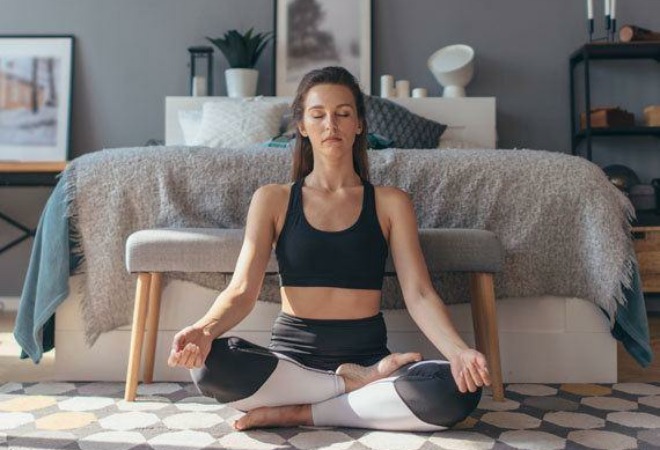Many of us struggle or have struggled with aches and pains. From chronic pain to temporary injuries, body pain can impact on our day-to-day activities. Pain researcher Dr Nicola Swain shares her insights and recommended remedies to help ease aches and pains; plus discusses the importance of a good night’s sleep to help your body rest and reduce discomfort.
Advice for back ache
When discomfort disrupts sleep
Almost twenty percent of New Zealanders have persistent or chronic pain, that is one in five of us. Many more will also have intermittent pain (injuries and illnesses) that are temporary. The most frequently experienced pain is musculoskeletal pain, that is of the muscles or bones, with the most common type being back pain. Lower back pain, neck pain and other musculoskeletal disorders are three of the top five causes of disability worldwide (depression and anxiety are the other top five disabilities).
One thing we know is that a lack of sleep can make pain worse. Unfortunately, this can become a vicious cycle as pain can result in interrupted sleep and reduced sleep quality, often leading to an increase in pain. Sleep disorders affect half of those suffering with chronic pain. Both pain and sleep problems are also linked to increased depression and anxiety.
Pain can interfere with getting to sleep or staying asleep. Most people will wake up during the night, perhaps to roll over or get comfortable, which often goes unnoticed. However, if our body sends us a pain signal, this can often wake people up entirely. To reduce the likelihood of this, try and quiet the mind’s chatter. Use a calming statement to yourself. Sometimes we can engage in catastrophizing, which is where our pain waking us up, and can turn into thoughts of our day being ‘ruined’, creating stress and anxiety, making it harder to get back to sleep. Instead, try to accept a thought about pain, take a few deep breaths and go back to sleep.
Sleep is essential for health and well-being. Additionally, if you experience any type of pain, you should put a strong focus on finding ways to improve your sleep. Improving sleep can be thought of as a treatment for your pain. Here are some tips to help enhance your sleep quality:
Advice for back ache
Ways to help enhance your sleep quality
GET COMFORTABLE
A quality mattress is key, but make sure the comfort level aligns with you and your pain. Linen can help, check the quality and make sure it’s clean and fresh. Think about your pillows – especially if you have pain in your neck, shoulders or back. Your bed should be supportive. If you have a specific injury your physio might be able to help with comfortable sleeping positions or aids, like pillows.
EAT OR DRINK BEFORE BED
This one might sound counterintuitive but eating carbs (like white rice) or drinking milk or herbal tea can help you fall asleep. These foods can assist with increasing the levels of tryptophan in the body, which can reduce the time taken to fall asleep, promote more restful sleep and improve morning alertness. Grandma was right, a nice Milo can help you go to sleep.
EXERCISE
A short walk after dinner can help with sleep. Walking helps with body temperature changes needed for sleep and can also reduce anxiety. Try walking with friends or family and in nature to increase the benefits. Long-term, walking will strengthen muscles and can help to reduce the pain experienced.
PRACTICE YOGA
If you haven’t tried yoga before, start with a beginner’s course. Yoga is an excellent choice that can suit all fitness levels and body types. It works well for gentle stretching and balance and also teaching awareness of our bodies. It’s a kind of mindful practice that can help with learning to switch off and sleep. Research has found yoga has potent pain-relieving effects on the brain. It can improve your daytime pain tolerance too.
TAKE SLOW DEEP BREATHS OR TRY PROGRESSIVE MUSCLE RELAXATION
Before going to bed try taking five slow, deep breaths. This helps to calm your body. The breaths have effects on respiration, cardiac function and the autonomic nervous system. Once in bed, a technique called progressive muscle relaxation can be helpful to find hidden tension in your body. It involves thinking of each part of your body from toe to head, tightening the muscles, then relaxing. It has been found to reduce stress and anxiety as well as relieve insomnia and pain.
TRY SUPPLEMENTS
There are a variety of supplements that can assist with sleep. Your pharmacist is probably the best place for advice. Options include herbal teas, like chamomile, or herbal pills like Valerian or even fruit extracts like cherry or tart cherry juice or extract. Try a visit to your local pharmacy to be tested to see if you are short of zinc. Many people find that magnesium helps to relax muscles and helps you sleep. Melatonin sprays and pills can also be used to adjust sleeping patterns.
SING – OR HUM
Singing, humming (and gargling) activates the vagal nerve. The vagal nerve is a nerve that travels from the brainstem down your body to your heart, lungs and gut. It’s the longest nerve in the body. Stimulating the vagal nerve can help generate a ‘rest and digest’ response to pain, instead or the less helpful ‘fight or flight’ response. We can stimulate the nerve by singing a favourite song or just humming.
In addition to these recommendations, there are plenty of general sleep tips like going to bed at the same time each night and limiting evening screen time. Do some research and find what works for you.




